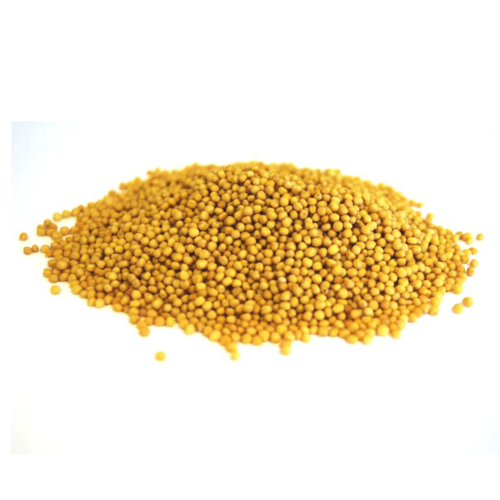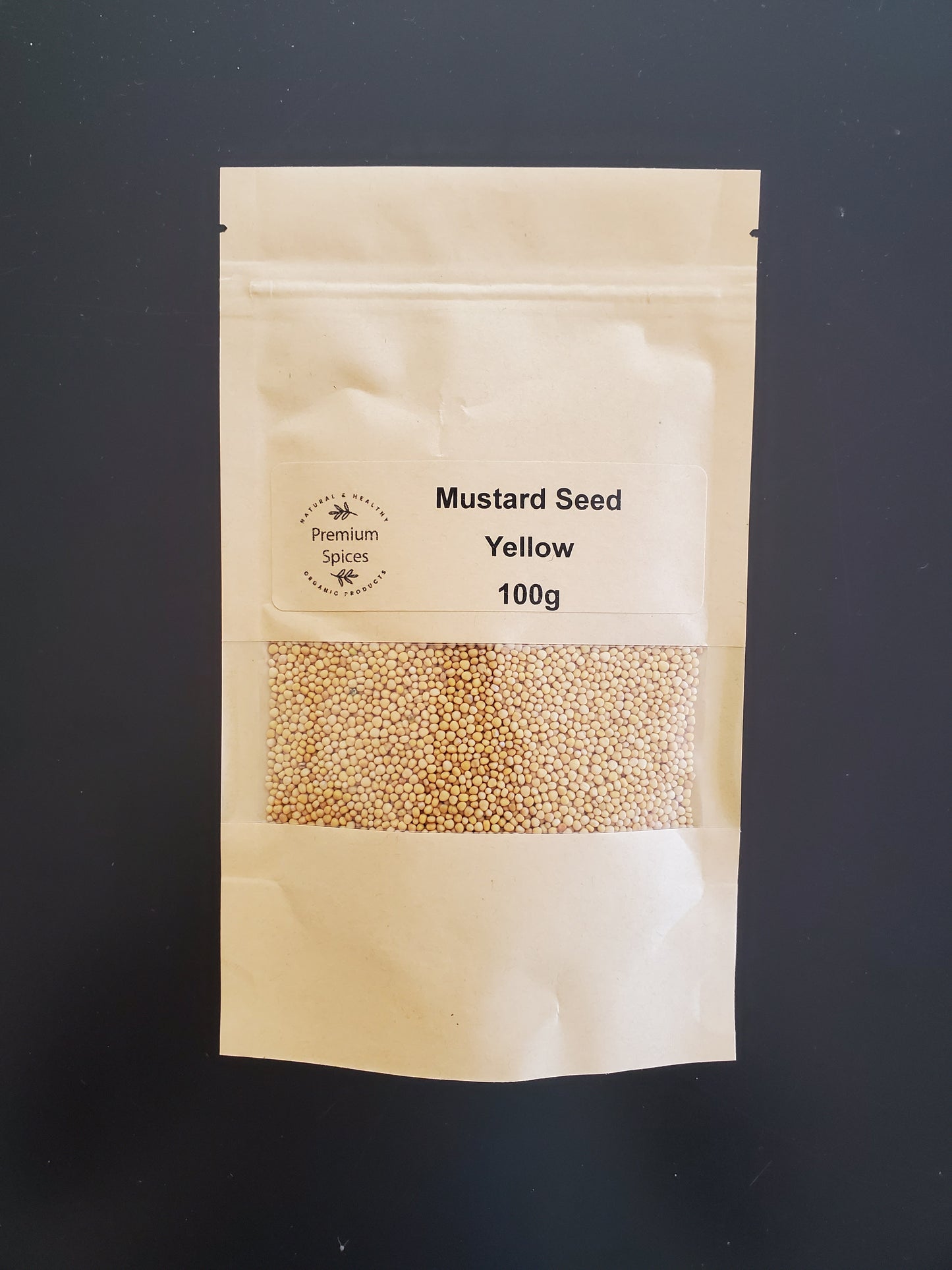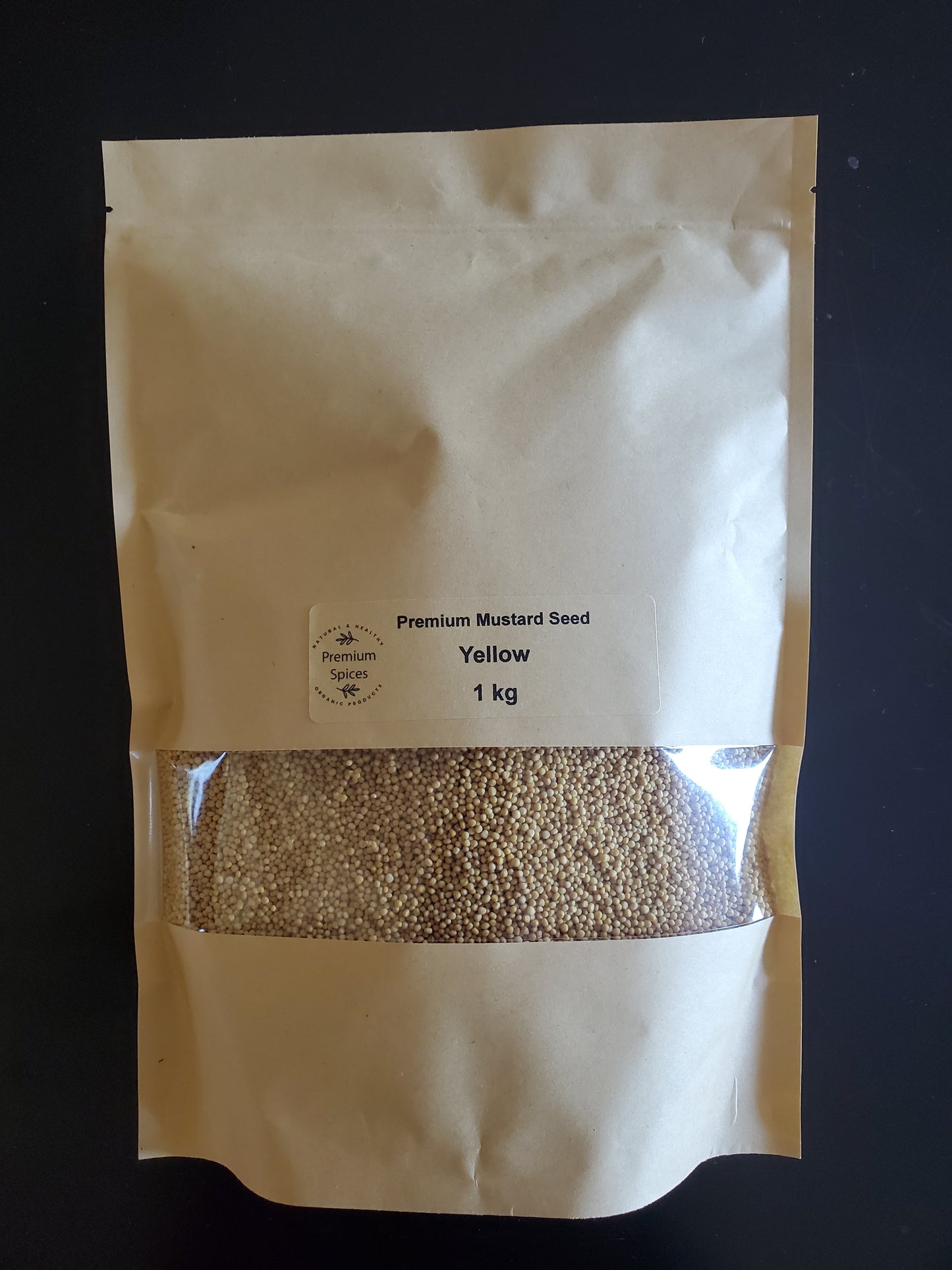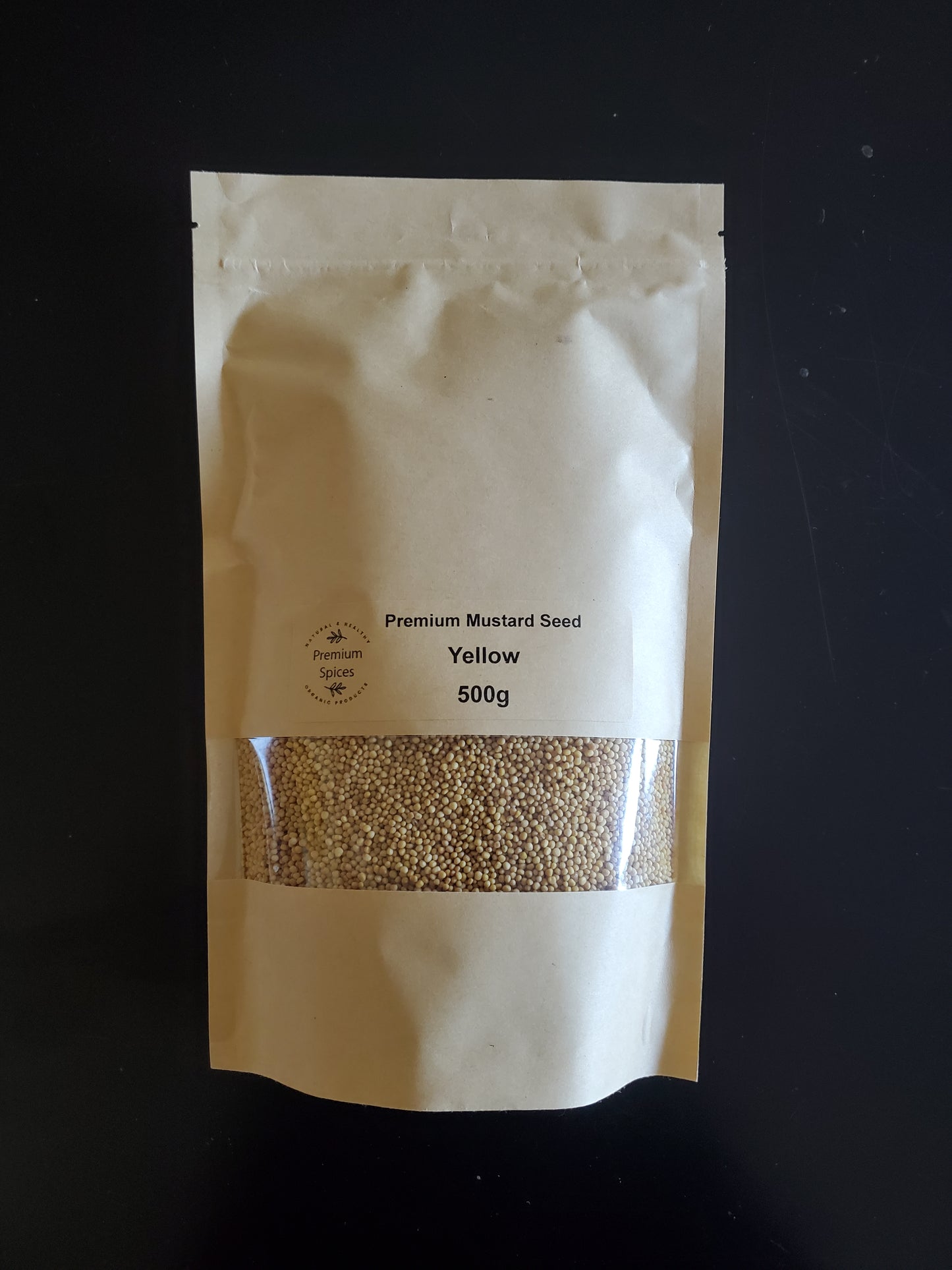Premium Spices
Premium Mustard Seeds Yellow
Premium Mustard Seeds Yellow
Couldn't load pickup availability
The Ultimate Quality Yellow Mustard Seeds available in NZ, only from Premium Spices:
History, Uses, and Benefits:
Mustard Seeds go well with cold meats, sausages, grilled steaks, poultry, fish, herbs, wine, garlic, sauerkraut and fruits. Yellow mustard seed acts as a physical emulsifier and stabilises mayonnaise and salad dressings. It is also used as a flavour enhancer and a water binder in processed meats.
Whole yellow mustard seeds are used, amongst many other uses, in pickled condiments, not only for flavour but also for their preservative function.
Delve into the fascinating world of mustard seeds – a culinary treasure with a rich history dating back to ancient civilizations. From its symbolic significance in Indian culture to its versatile culinary applications and therapeutic uses, mustard seeds have left an indelible mark on culinary traditions worldwide. In this comprehensive guide, we explore everything you need to know about mustard seeds, from their origins to their modern-day uses and therapeutic benefits.
Ancient Origins and Cultural Significance: Mustard seeds hold a special place in the annals of history, serving as a symbol of fertility for ancient Indians and finding favour amongst diverse cultures, including the Greeks, Chinese, and Africans. Their journey through the ages is testament to their enduring appeal and culinary versatility.
Varieties and Flavour Profile: Mustard seeds come in various colours and sizes, each offering a unique flavour profile. Black mustard seeds, characterized by their smaller, darker appearance, boast a robust and pungent flavour with a hint of nuttiness. The intensity of the flavour increases with the size and darkness of the seeds, making them a popular choice for adding heat and depth to dishes.
Culinary Uses: From whole seeds to crushed or ground forms, mustard seeds lend their distinctive flavour to a myriad of culinary creations. They pair harmoniously with cold meats, sausages, grilled steaks, poultry, fish, herbs, wine, garlic, sauerkraut, and fruits, adding a zesty kick to any dish. Ground yellow mustard, in particular, serves as a versatile ingredient, acting as a physical emulsifier in mayonnaise and salad dressings, while also enhancing the flavour and texture of processed meats.
Preservation and Pickling: Whole yellow mustard seeds play a vital role in pickled condiments, not only for their flavour but also for their preservative properties. Their inclusion helps maintain the integrity and flavour of pickled delicacies, ensuring a delightful burst of flavour with every bite.
Therapeutic Benefits: Beyond their culinary allure, mustard seeds boast a range of therapeutic benefits that have been recognized since ancient times. The Greeks used mustard for treating scorpion and snake bites, while mustard plasters were employed to stimulate blood circulation, alleviate cold feet, relax stiff muscles, and ease arthritis and rheumatism. Additionally, mustard stimulates the flow of salivary and gastric juices, promotes appetite, acts as a laxative, aids in asthma relief, and can even induce vomiting or relieve coughs.
Conclusion: From ancient rituals to modern-day NZ kitchens, mustard seeds continue to captivate and inspire with their unparalleled flavour and versatile applications. Whether used to spice up your favourite dishes, preserve pickled delicacies, or harness their therapeutic benefits, mustard seeds are a true culinary gem. Discover the timeless allure of mustard seeds today and embark on a journey of culinary exploration and well-being.
Mustard seed was the symbol of fertility for the ancient Indians and has been used by Greeks, Chinese, Indians and Africans since ancient times.
Black mustard seeds are used whole, crushed, ground or as flower seeds.
The smaller and darker the seeds, the more intensive and hot the flavour is. Black mustard is oblong and is the smallest. It has a sharp flavour along with a nutty after-taste.
The whole seed itself has no flavour, but can provide a pungent taste after chewing for some time.
Therapeutic uses: In ancient times, the Greeks used mustard for scorpion and snake bites. Mustard plasters were used to stimulate blood circulation and to warm up cold feet, to relax stiff muscles and to treat arthritis, and rheumatism.
Mustard also stimulates the flow of salivary and gastric juices and promotes appetite. It has been used as a laxative, as a remedy for asthma, and to induce vomiting or relieve coughs.
We stopped selling the non-organic Mustard Seeds, because the price for organic Mustard Seeds are cheaper. Please look at our organic Spices.
Share








